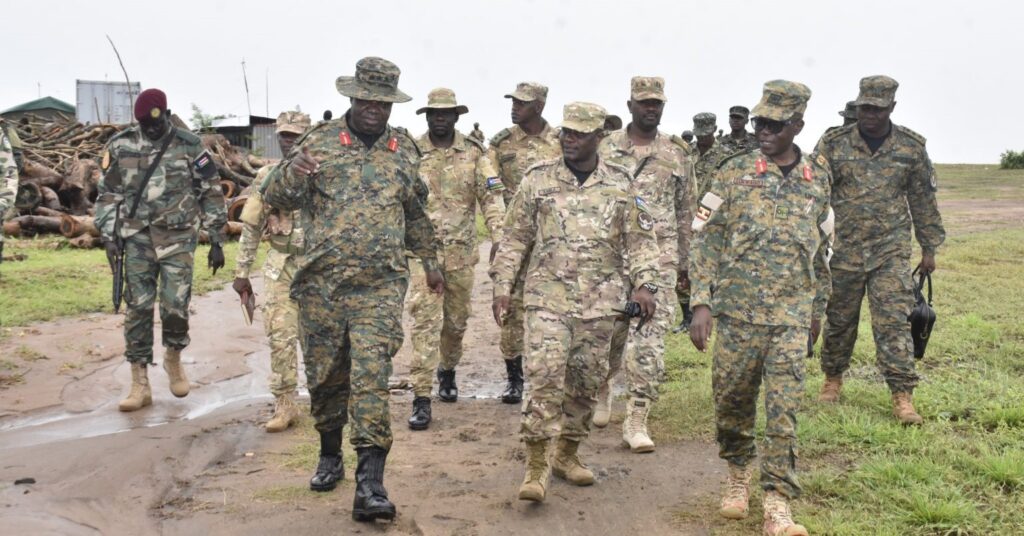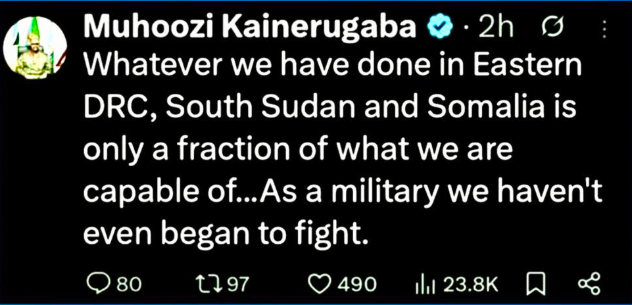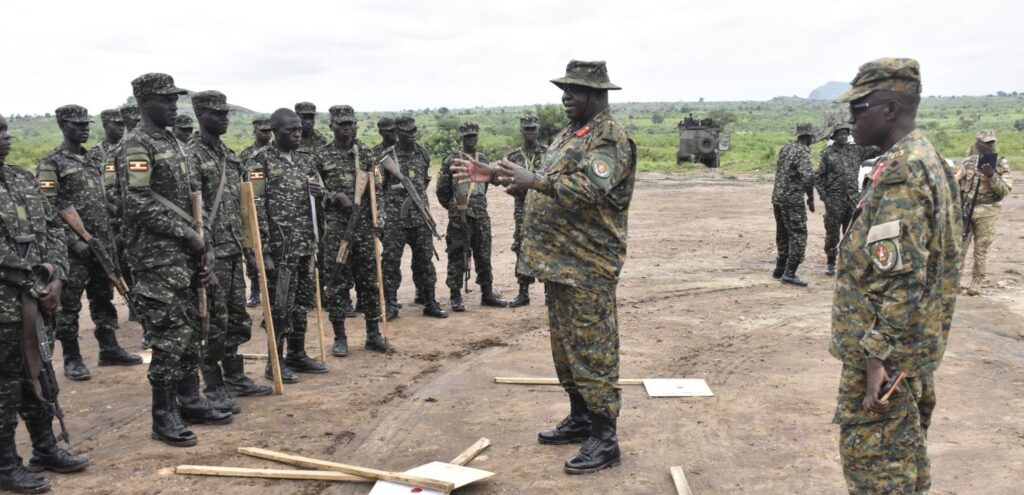Uganda’s Deputy Chief of Defence Forces, Lieutenant General Sam Okiding, visited Ugandan troops stationed in Bilnyang village, just a few kilometers from South Sudan’s capital, Juba, on Saturday.
The location of the deployment near Juba had not been publicly disclosed since Ugandan forces were invited by South Sudan in March to bolster security in Juba and the Upper Nile region.
The deployment of the Ugandan forces followed renewed tensions between South Sudan’s President Salva Kiir and his rival, First Vice President Riek Machar.
A youth group from President Kiir’s community, Awan Chan, claimed on Sunday that Ugandan soldiers deployed in war-torn South Sudan are paid $200 per day per soldier.
Bilnyang, situated in Mangala Payam within Central Equatoria State’s Mangala County, marks a strategic position for Ugandan forces.
South Sudan and Uganda have long maintained close military ties.
According to a statement obtained by Radio Tamazuj, Lt. Gen. Okiding praised the troops for their discipline and urged them to “prioritize training for combat readiness” while maintaining peace in South Sudan.
He commended Brigadier General Anthony Mbuusi, the Ugandan officer overseeing operations near Juba, for his leadership and pledged continued support from the Uganda People’s Defence Forces (UPDF) high command.

Brig. Gen. Mbuusi, in turn, thanked Ugandan President Yoweri Museveni—the UPDF’s Commander-in-Chief—and the Chief of Defence Forces for their “strategic guidance,” which he said had boosted morale under Operation Mlinzi Wakimya.
Among those in attendance were the Assistant Chief of Defence Forces, Lt Gen Kong Thou; SSPDF Chief of Military Intelligence, Lt Gen David Ohucholi; Battle Group Commander Col Benard R. Kashemeza; Special Forces Component Commander Col JM Kabila; Asset Commander Col Steven Namolo; and Joint Task Force Intelligence Officer Lt Col Alex Habyona.
Before visiting Bilnyang, Lt. Gen. Okiding met with South Sudan’s Chief of Defence Forces, General Dau Aturjong Nyuol, in what both sides described as an effort to strengthen military cooperation.
Gen. Aturjong emphasized the historical ties between the two armies, calling them “sister forces” and stating, “No one can separate us because we share a lot historically.”
However, the diplomatic overtures come just days after deadly clashes between Ugandan and South Sudanese forces in South Sudan’s Kajo-Keji County, a shared border area. The skirmishes resulted in casualties on both sides, raising concerns over escalating tensions.
The incident was further inflamed by a social media post from Muhoozi Kainerugaba, the Ugandan military chief and son of President Museveni, which was perceived as provocative by South Sudanese.

Ter Manyang Gatwech, a prominent South Sudanese civil society advocate, accused the UPDF of exploiting the SSPDF’s vulnerabilities, warning that such actions undermine regional stability.
“Military officers of such high rank should refrain from political discourse,” Gatwech told Radio Tamazuj Monday, calling on Uganda’s parliament to hold Gen. Muhoozi Kainerugaba accountable.
He urged the African Union (AU), the Intergovernmental Authority on Development (IGAD), and the East African Community (EAC) to mediate between the two armies and local leaders to restore trust.
“Dialogue is essential to rebuild confidence among military forces and civilians,” he added.




